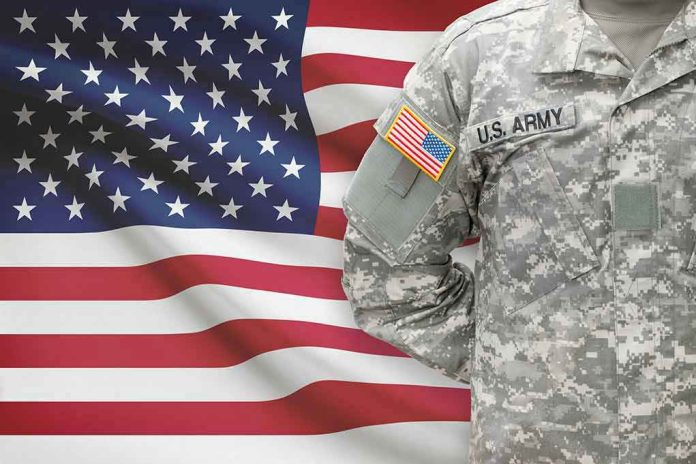
A new presidential declaration threatens to deploy the full U.S. military in American cities, raising alarms about executive overreach.
Story Highlights
- President Trump suggests deploying the full military domestically, sparking constitutional debates.
- The Posse Comitatus Act generally prohibits federal troop use in law enforcement, with exceptions.
- Trump’s past National Guard deployments set a precedent for military use in civil unrest.
- Legal experts express concern over potential erosion of civil liberties.
- Debates intensify over federal versus local authority in law enforcement.
Trump’s Military Deployment Proposal
President Donald Trump has recently indicated his willingness to deploy the full U.S. military to American cities, which he asserts is necessary to maintain order amidst civil unrest. This statement has reignited discussions on the limits of presidential power and the role of the military in domestic affairs. Historically, the Posse Comitatus Act of 1878 restricts the use of federal troops for law enforcement, but exceptions exist for insurrections or congressional authorization.
Trump’s assertion comes during a period of heightened political tension. The President has previously utilized the National Guard to respond to protests and unrest, and this new stance represents a significant escalation. His claim that courts would not intervene in such a deployment adds a layer of complexity to the legal and constitutional concerns surrounding this issue.
Constitutional and Legal Concerns
The potential use of federal military forces in domestic settings raises significant constitutional questions. Legal scholars point out that such actions might conflict with the Posse Comitatus Act. While the Act is designed to prevent military involvement in domestic law enforcement, exceptions for insurrection or congressional approval exist.
Trump’s statements have prompted reactions from civil rights groups and legal experts who fear that such measures could erode civil liberties and set a dangerous precedent. The balance of power between federal and local authorities is also a critical concern, with local governments wary of federal overreach.
Implications for Civil Liberties
The potential deployment of the military within U.S. cities could have far-reaching implications. In the short term, it may lead to heightened tensions between protesters and military personnel, while in the long run, it could pave the way for more frequent use of military force in domestic contexts. Such actions could challenge constitutional norms and further polarize the political landscape.
Economically, local businesses and communities may experience disruptions, while socially, there could be an increase in fear and mistrust toward the government. The political ramifications include intensified debates over the appropriate scope of federal authority in maintaining public order.
As discussions continue, it remains to be seen how these developments will unfold and what impact they will have on the future of civil-military relations in the United States.
Sources:
Trump Warns He Could Send Full Military Into U.S. Cities
National Guard Deployment and the Posse Comitatus Act


